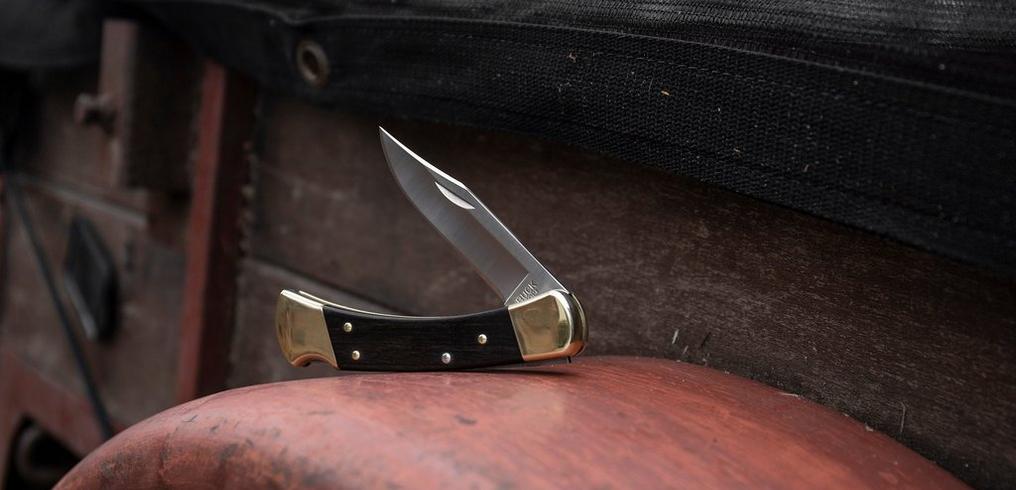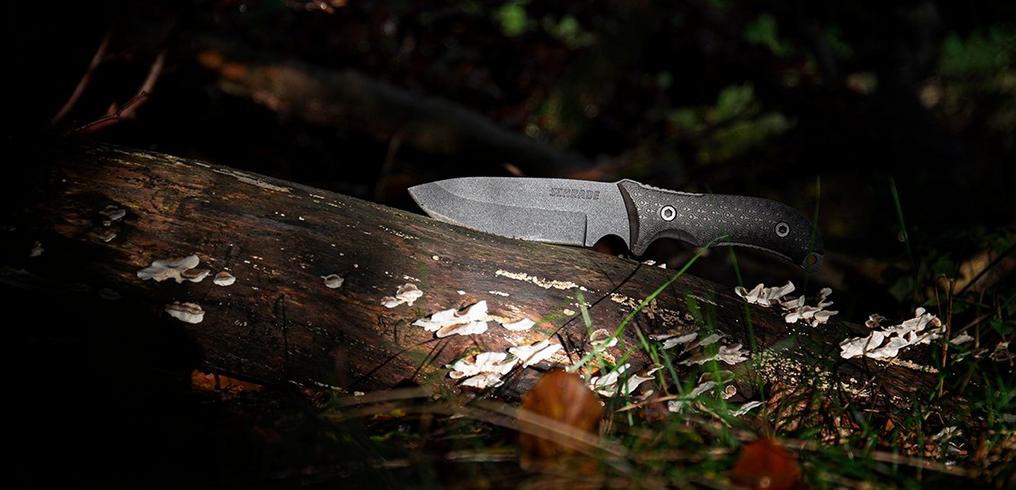Laguiole knives: How do you recognize a counterfeit?
There are many misunderstandings about Laguiole knives. Is it a brand? When is a knife a true Laguiole knife? And why does one sell them for £400 a piece while elsewhere you can get a set of six knives for just ten pounds? At knivesandtools you always buy an original Laguiole knife. But what about the rest? We will give an answer to that question once and for all.
What is a Laguiole knife?
Let's start with the name Laguiole: this is the name of a tiny mountain village. The village Laguiole is located in the heart of the Aubrac region in Southern France. Early in the 19th century pocket knives and a table knives were made here for shepherds and farmers in the Aubrac. In The Netherlands we know the Laguiole knives by the late Johannes van Dam. As a culinary critic, he never went home without a Laguiole knife.
Not far from Laguiole lies the town of Thiers, which is the knives capital of France. After the First World War, all knife workshops disappeared from Laguiole and moved the production to Thiers. In the 80's of the 20th century, a group of enthusiasts started the brand Forge de Laguiole, which to this day is the only brand that is actually located in the village of Laguiole
In Thiers, there are workplaces that have their roots in Laguiole and still produce in an authentic way, such as Fontenille Pataud and Laguiole en Aubrac. Together with Forge de Laguiole they are the only ones who abide to the traditional production level. There are also a number of small workshops that authentically produce beautiful and unique Laguiole knives on a (very) small scale and only on order.
The real purists believe that Forge de Laguiole is the only real brand. They are the only ones based in the village of Laguiole itself and also produce from there.
Handmade: every knife is a work of art
Genuine Laguiole pocket knives and table knives are characterized by the artesian craft. Each knife is hand-made from start to finish by one person. The beautiful fine file work on the back of the blade is very characteristic. In addition, special and unique material is used for the handle. Think of Buffalo Horn, juniper wood and boar tooth. But also the use of damask steel, silver and ivory is very common with the more exclusive Laguiole knives.
Each knife is hand-made from start to finish by one person.
Original Laguiole pocket knives do not have a lock. They are equipped with a slip joint-spring, making sure there is resistance when closing the knife. At the same time, there is no stop pin that prevents the blade from contacting the spring when in the handle. It is therefore important to always be careful when closing a Laguiole pocket knife to prevent the edge from getting damaged.
You can clearly see the manual labour when looking at a genuine Laguiole knife. The personal touch of the maker is always visible. Where with most modern and tactical folding knives backlash-free and centred blades are the standard, Laguiole knives don’t have this as much. The most important is the manual labour and tradition. A Laguiole knife does not have to be very sharp: a Laguiole is generally sharp enough to neatly cut a steak and a piece of cheese, but is not sharp enough to shave with.
Smallest chapel in the world?
A Laguiole knife originally has a number of (Silver) pins in the side of the handle that represent a Christian cross. The story goes that when the shepherds were far away from home in the mountains, they could pray to their own cross. The name of the village 'Laguiole' comes from La Gleisola which means 'small church' in Occitan (local dialect).
Laguiole is a generic name for the model that originates from the village of Laguiole. The name Laguiole is not protected.
Is Laguiole a brand?
A lot of people think that Laguiole is a brand name. This is not the case: Laguiole is a generic name for the model that originates from the village of Laguiole. The name Laguiole is not protected. At least, not the knives. The Laguiole cheese is protected by anAppellation d'Origine Contrôlée (AOC). This means that only cheese produced in the village of Laguiole may carry the name Laguiole. Violation of this is punishable.
The tricky thing is that there is no official ruling which prescribes what a true Laguiole knife must be. Laguiole's largest knives maker, Forge de Laguiole, has for many years been working on getting the Laguiole knives under a Indication Géographique Protégée (IGP). Of course, the mayor of Laguiole supports this, but as of yet the name Laguiole is unprotected.
Counterfeit Laguiole knives
This means that everyone may use the name Laguiole. It does not matter where the knife is created, the country of origin could be France, China, Pakistan or even South Africa. Since the Laguiole knife is nowadays increasing in popularity, producers from around the globe eagerly make use of the unprotected brandname. At local and large vendors we find knives that somewhat resemble a Laguiole knife, but have absolutely nothing to do with the tradition and history of the original Laguiole knife. Often, these knives are promoted by including a "certificate of authenticity" with them. Or there are a few French words on the packaging. The word "authentic" or "traditional" on such packaging also has no value; who determines to which tradition the knife was made?
The word "authentic" or "traditional" on such packaging also has no value; who determines to which tradition the knife was made?
You'll find a set of six brightly colored Laguiole table knives for about £10 in a common shopping centre. These knives are not from the village of Laguiole or its the region, but from China or Pakistan. They are not made in the same artisian way and its quality is hardly comparable. Not even mentioning the used materials and finishing.
Laguiole serrated knife?
Sometimes, we also find serrated table knives that have the brandname Laguiole on them. This is a joke. No self-respecting Laguiole maker would even think of producing serrated knives. With cartels, you rip your steak apart, instead of cutting it.
A grey area: counterfeit knives from France
There are many different knife makers based in Thiers. As we said before, we do business with some of them who adhere to the traditional way of producing. However, there are also a few knives in Thiers that disregard the way an authentic Laguiole knife should be produced. So we saw Laguiole knives serrated cuts and other strange models bearing the name Laguiole. Although made in France, they have nothing to do with original Laguiole knives. You can find the counterfeits even in respected department stores.
Also, there are several companies and small businesses that are located in or around Laguiole, who don't actually do much more than a little assembly work. Their parts are produced elsewhere, but assemble them in or around Laguiole so they can say the knives are coming from Laguiole.
Three ways to recognize a counterfeit
Because the name Laguiole is not (yet) protected, it remains difficult for a layman to recognize an authentic Laguiole. There are some tips to help you distinguish a lot of the counterfeit knives and authentic knives:
1: Serration
A true Laguiole knife has no serrations. Laguiole knives with a serrated cut have little to do with the original tradition. Only some Laguiole steak knives sometimes have a subtly serrated blade.
2: Price
A Laguiole knife is hand-made, shaped and finished. All of that takes place in France. In addition, a knife-specific steel and a beautiful handle material is used. When you think about it, you realize that this can never be sold for just ten pounds, let alone when you can get six pieces for the same amount. For ten pounds, there is no way the traditional materials and finishing methods are used. A Laguiole knife is not mass-produced.
3: Handle material
As said earlier, Laguiole knives are often made with a nice heft material. Think of pistachio wood, buffalo horn, juniper wood or olive wood. The most inexpensive material that you generally come across is stamina wood: a built-up from real wood, composite material with epoxy resin. You will not come across plastics on a genuine Laguiole knife.
Top-10 Laguiole steak knives
Best-sellers in French Laguiole knives
Forge de Laguiole, Fontenille Pataud en Laguiole en Aubrac
At knivesandtools we find it appalling that a beautiful traditional product as the classical Laguiole knife is so threatened by the Asian counterfeiting. That is why we only sell Laguiole knives from brands with a strong reputation. Only knives that are manufactured in the traditional way in the region around the village of Laguiole.

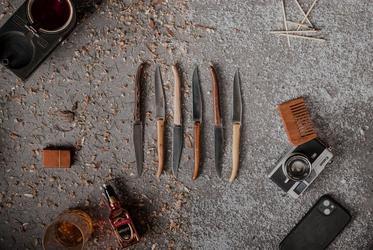
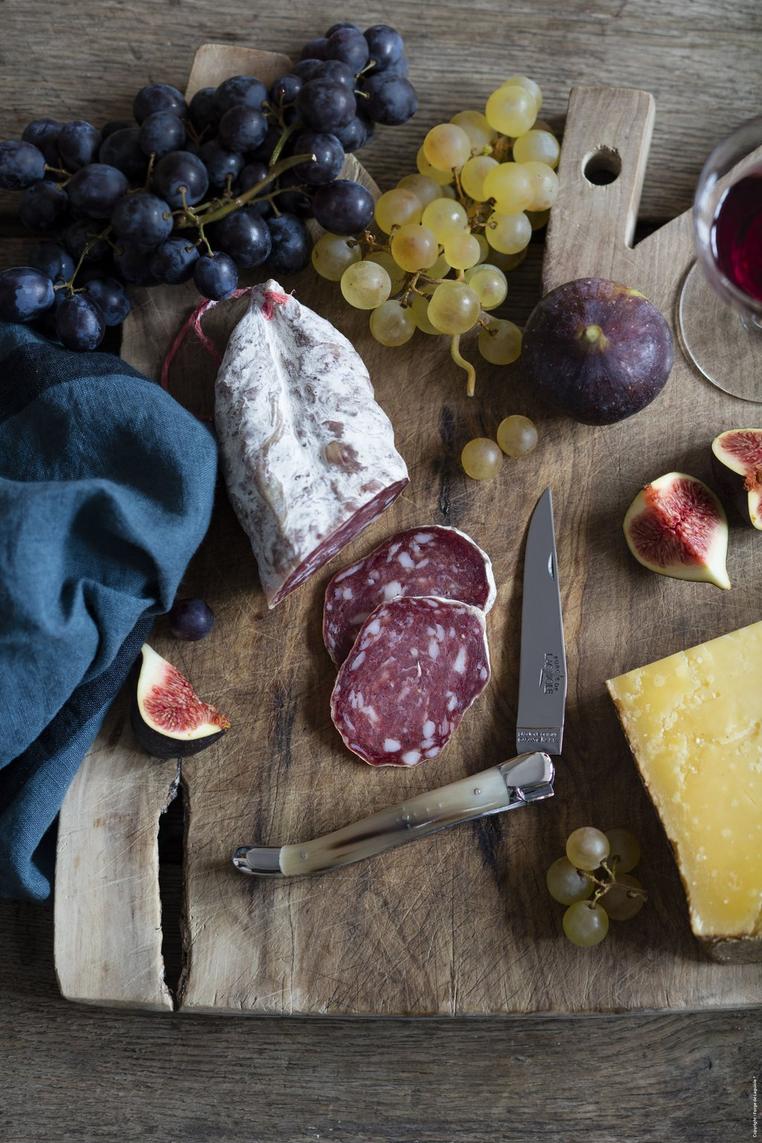
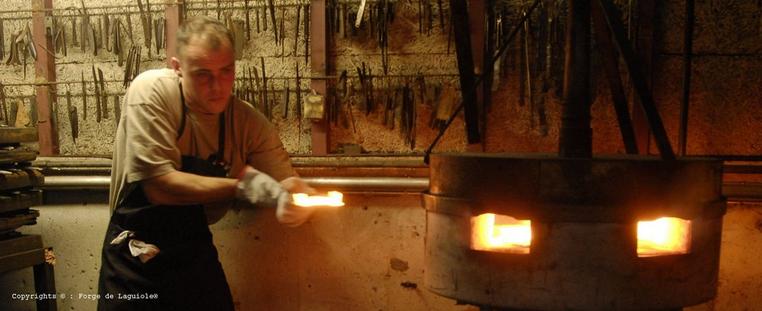
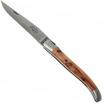



















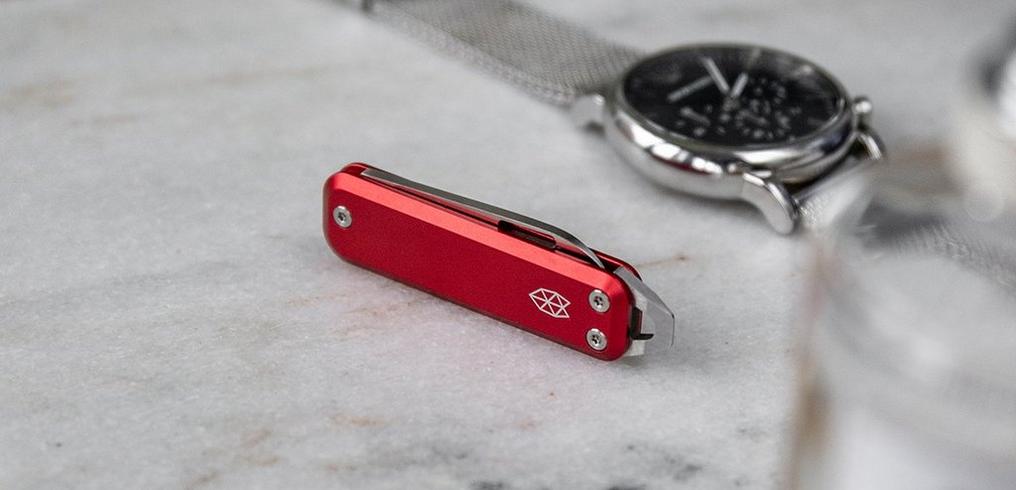
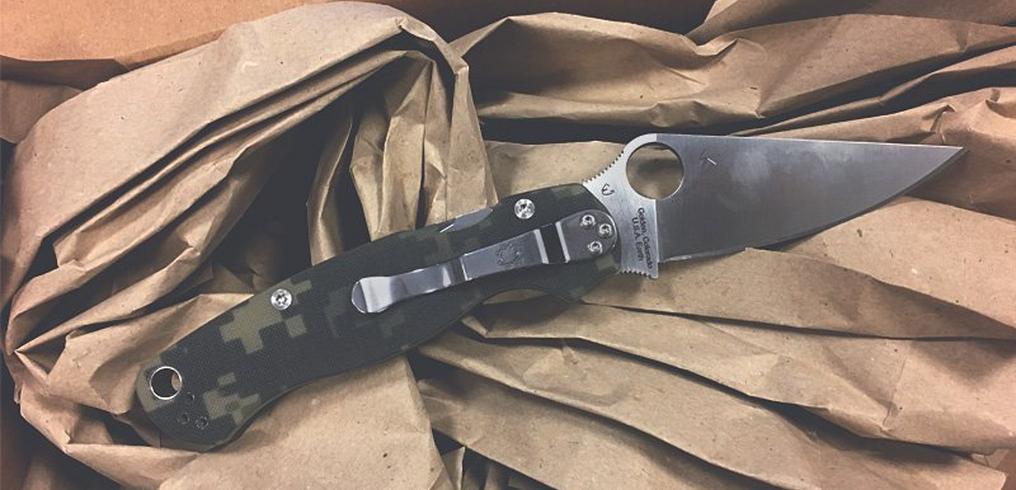
?%24center=center&%24poi=poi&%24product-image%24=&fmt=auto&h=490&poi=%7B%24this.metadata.pointOfInterest.x%7D%2C%7B%24this.metadata.pointOfInterest.y%7D%2C%7B%24this.metadata.pointOfInterest.w%7D%2C%7B%24this.metadata.pointOfInterest.h%7D&scaleFit=%7B%28%24this.metadata.pointOfInterest%29%3F%24poi%3A%24center%7D&sm=c&w=1016)


